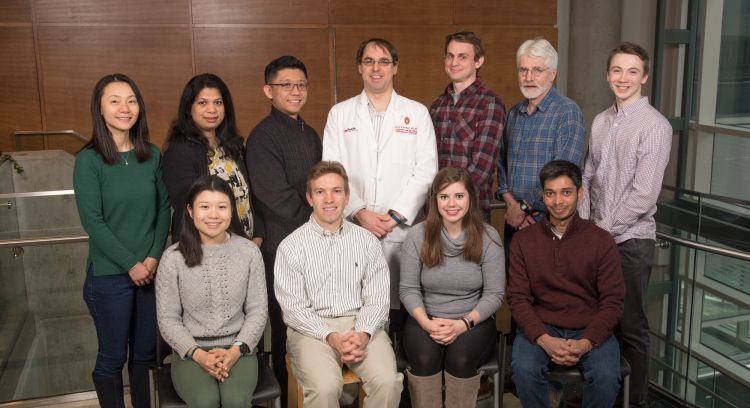Finding better methods to determine chemotherapy treatments


Identifying the best chemotherapy drugs for a cancer patient is usually a trial-and-error process. One after another drug from a list known to have worked for a specific type of cancer is given to a patient until their oncologist finds one that works for them.
The process can be tedious, time-consuming, and can lead to unwelcome and unnecessary side effects.
Research led by Mark Burkard, MD, PhD, associate professor, Hematology, Medical Oncology and Palliative Care, is aimed at addressing an aspect of this problem by identifying biomarkers that would indicate which breast cancer patients would benefit from paclitaxel (Taxol).
"In our current trial, we’re researching a new method to study chromosomes that should allow us to predict patient response to Taxol more accurately,” said Dr. Burkard. "We don’t want to give our patients drugs that aren’t going to benefit them."
The effort is receiving funding from Garding Against Cancer, an effort founded by UW Men's basketball coach Greg Gard and his wife Michelle to work with Badgers across the state to advance cancer research in Wisconsin.
Resources:
- "Looking for Better Methods to Determine Chemotherapy Treatments," UW Health, March 15, 2018
Photo caption (top): Mark Burkard, MD, PhD, with members of his research team. Seated, front row, left to right: Rachel Yan (undergraduate student), Ryan Denu (MD/PhD graduate student), Madi Sass (undergraduate student), Roshan Norman (graduate student). Standing, back row, left to right: Ning Jin, MD (Research Associate and Clinical Instructor), Alka Choudhary, PhD (Research Specialist), Yang Hu (graduate student), Dr. Burkard, James Johnson (graduate student), David Thompson (Senior Research Specialist), Andrew Lynch (graduate student). Photo credit: Clint Thayer/Department of Medicine